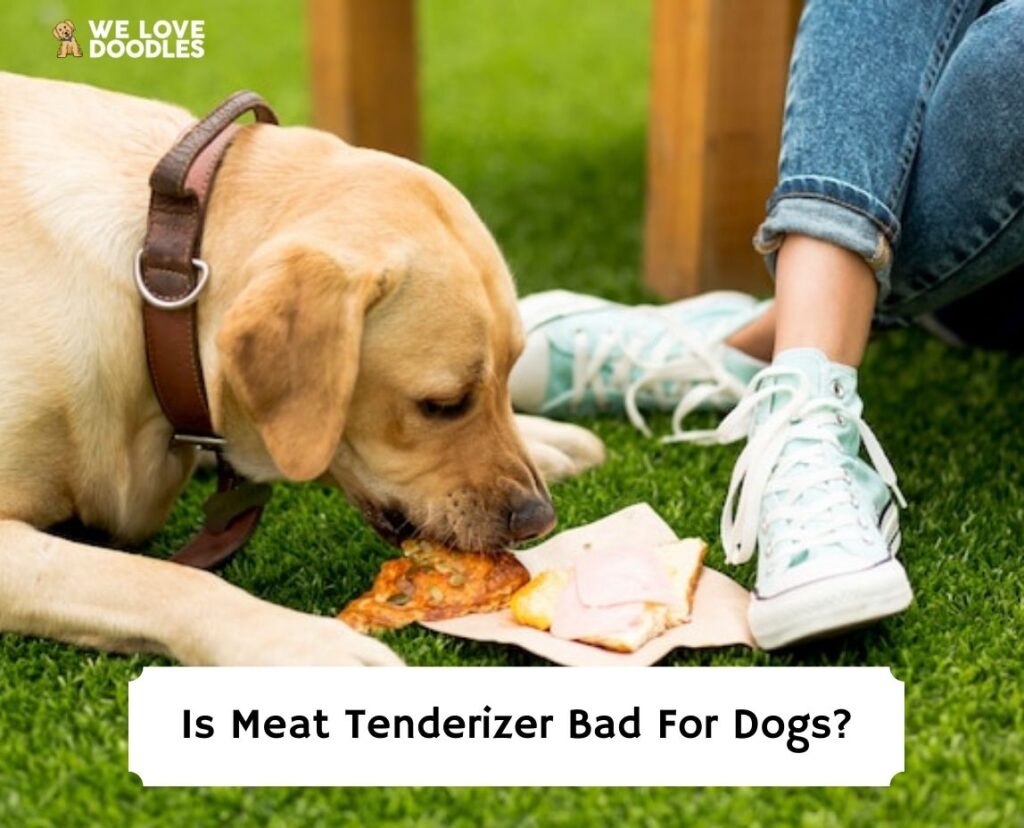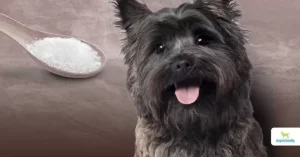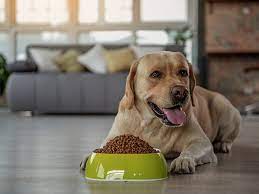
Is meat tenderizer bad for dogs or not? Here’s what you need to know about meat tenderizers for dogs. Meat tenderizer is a popular anecdote to keep dogs from eating their poop. But although this remedy is useful for a gross habit, meat tenderizer is also packed with sodium and other preservatives. But there are also some ingredients in meat tenderizers that are beneficial to dogs.
With this information in mind, we’re going to answer the question of whether meat tenderizer is bad for dogs. Meat tenderizer for dogs that eat poop is a very effective treatment. But high levels of sodium in this product can also pose problems for dogs. Ultimately, the ability of meat tenderizers to cure coprophagia and the benefits of the ingredient bromelain make meat tenderizers beneficial for dogs in moderation.
Meat tenderizer is a product that divides opinions on dog health. It helps cure a disgusting habit with some dogs but also has side effects. In this guide, we will take an in-depth look at the role of meat tenderizers in dog health. We will explore the benefits as well as the concerns.
Before you scroll down to a more in-depth answer to this guide, “Is Meat Tenderizer Bad For Dogs,” you can check out these other dog-related questions answered by our team at We Love Doodles: Is Sudocrem on Dogs Safe and Is Maltodextrin Safe For Dogs?
Does Meat Tenderizer Have Any Health Benefits for Dogs?

Coprophagia is defined, simply, as eating poop. It’s a behavior that some animals engage in due to innate curiosity and likely also due to nutritional deficiencies. Discouragement of this behavior is at the root of the practice of adding meat tenderizer to your dog’s food. But does it work?
An enzyme called bromelain comes from pineapple and is effective at helping both dogs and humans digest protein. It’s found in meat tenderizers, and it makes a dog’s stool less appealing to him, particularly if a protein deficiency is to blame for the disgusting behavior.
Giving a dog meat tenderizer has no inherent health benefits. Let’s take a further look at the ingredients in meat tenderizers and how they affect dogs.
Meat Tenderizer Ingredients
Meat tenderizers typically come in either seasoned and flavored varieties or the preferable unseasoned type for dogs.Ingredients that make up unseasoned meat tenderizers usually include:
- Bromelain – As mentioned, this ingredient is safe for dogs and is the primary ingredient that can prevent coprophagia.
- Dextrose – Unlike the more common sucrose, dextrose is a type of simple sugar, and in small amounts, this ingredient is not toxic to dogs.
- Sodium – Even in unseasoned tenderizers, the salt content is the most problematic ingredient in meat tenderizers. The unseasoned variety of tenderizer includes roughly 400 mg per teaspoon, far more than a dog needs in a day.
As you can see, the sodium content is the most cause for concern in tenderizers. Dogs should only consume about 200 mg of sodium per 33 pounds of body weight. This is fine if you are willing to heavily reduce the sodium in your dog’s daily meals.
On the day you choose to dose your dog with meat tenderizer, feed your pup a raw diet to reduce his sodium intake from food. One teaspoon of tenderizer would exceed their daily limit. But just how much meat tenderizer should you give your dog?
How Much Meat Tenderizer to Add to Dog Food

It doesn’t take much tenderizer to affect a dog’s poop. Just one teaspoon mixed into your dog’s wet food is the best method for administering a meat tenderizer. If you primarily feed your dog a wet diet, you can sprinkle the tenderizer on a bit of peanut butter to give to your dog.
There is no clear answer regarding how long you must dose your dog with a meat tenderizer to cure the problem. Due to the sodium content in this product, it is not advisable to administer it to your dog every day. Better yet, it would be most beneficial to try other methods to break your dog of this habit. We’ll talk about this in more detail later in this guide.
Related: Why is My Dog’s Poop Grainy?
Meat Tenderizer with MSG for Dogs

A tenderizer with MSG may be best if you want to try a meat tenderizer to stop your dog’s poop-eating habit. MSG is not appealing to dogs at all, and this is likely a combination of the taste or the unappealing digestive discomfort it may cause them.
But perhaps most of all, and most dangerously, MSG can lead to seizures in some dogs. Such a small amount as a teaspoon is not likely to lead to this serious concern, but you should monitor your dog closely. The combination of the bromelain extracting all the protein from poop and the MSG is enough to make dog poop dry and virtually tasteless.
Related: How Often Do Puppies Poop?
Meat Tenderizer For Dogs That Eat Poop

Does meat tenderizer keep dogs from eating poop? Responsible dog parents typically know that high sodium can be bad for dogs, but coprophagia is also very bad for dogs and can lead to viruses or internal worms.
It is worth looking closely at the meat tenderizer’s role in curing coprophagia dogs. Dogs engage in coprophagia for many different reasons. It could be that a dog does not perform this act solely from a nutritional deficiency alone.
Here are some of the reasons why your dog may be eating their poop:
- The taste of it. If your dog’s food is filled with excess protein, your dog may like the taste of the poop. Try lessening the amount of excess protein in your dog’s daily diet.
- Separation anxiety. Dogs with this disorder sometimes resort to defecating in the house or yard and eating it for reasons that are not well-understood. This could be because the lack of attention throws their bathroom schedule off-balance.
- Poor diet. If your dog is not getting enough nutrients and calories in its food, it will seek to make up for it by eating its poop. Please ensure you feed a dog a well-balanced diet that meets its daily nutritional needs.
- Extreme stress. Like separation anxiety, dogs constantly under stress may resort to odd behaviors outside their normal routines. This can sometimes happen when a dog is in a kennel or separated from its normal home. This could also occur from food competition with other dogs.
- Boredom. Dogs need lots of attention and validation every day. They also need mental stimulation and exercise. If your dog lacks these needs, it may resort to abnormal behaviors and not even know the difference. Dogs are peculiar in this way and will do anything to relieve boredom.
- Lack of discipline. Dogs must be disciplined to understand their place within a social hierarchy. Corrective action such as scolding or increased training is important to prevent your dog from engaging in mischievous behavior.
No matter the reason, it is important to prevent your dog from eating feces. This horrible habit can lead to severe abdominal upset, foul breath, and nearly certain infections from various worms or other internal parasites. It can also severely spoil the dynamic that owners, and family members share with their dogs.
Allowing your dog to lick you if they engage in this behavior is revolting, but it could also lead to the transmission of viruses, bacteria, and parasites to you. It is worth trying if it takes something like a meat tenderizer to cure your dog of this nasty habit.
If administered correctly, the payoff is worth any minor side effects from excess salt consumption. If you do not want to give your dog meat tenderizer, you could also try feeding them pineapple daily to add bromelain to their diet. Cleaning up after and disposing of your dog’s poop immediately is the best method to reduce coprophagia.
Frequently Asked Questions
Still have questions about whether meat tenderizer is a good solution for your dog? Here are the most commonly asked questions from We Love Doodles readers, answered.
What home remedy can I use to keep my dog from eating poop?
Meat tenderizer, in some cases, is a good solution to curb your dog’s poop-eating habit. However, it has a high sodium content so it should only be used in moderation.
As an alternative, consider giving your pup a bit of raw pineapple. Use fresh fruit as opposed to canned, as the canned and jarred varieties have too much sugar for your dog.
Why is my dog eating poop?
Your dog could be eating poop due to a disrupted potty routine, because of a protein or other nutrient deficiency, or just because he likes the taste. If it’s bothersome to you and meat tenderizer doesn’t curb the habit, talk to your vet about possible alternatives as well as reasons.
Is my dog’s poop eating dangerous?
Yes! It’s not only dangerous to your dog, it’s also dangerous to you and your family! Bacteria and even parasites exist in your dog’s fecal matter. Ingestion of these is dangerous, and your dog’s “puppy kisses” can spread bacteria (and worse) as well.
Conclusion For “Is Meat Tenderizer Bad For Dogs”

So, does meat tenderizer keep dogs from eating poop? The answer is yes, but it will take repeated doses to ensure your dog’s poop becomes unappetizing to him.
Meat tenderizer does not pose any severe or immediate side effects to dogs. However, excessive sodium intake could be a concern with prolonged meat tenderizer given to your dog daily. Meat tenderizer is not toxic to dogs, and this product, along with corrective behavior, can reduce coprophagia.
If you find this guide, “Is Meat Tenderizer Bad For Dogs,” helpful, you can check out these other dog questions answered by our team at We Love Doodles:
- Why Does My Dog Sleep At The Foot Of The Bed?
- Why Is My Dog So Clingy?
- Why Does My Dog Stretch So Much?
You can learn more about this topic by watching “Stop Your Dog From Eating Poop (Coprophagia)” down below:

Andy is a full-time animal rescuer and owner of a toy doodle. When he’s not saving dogs, Andy is one of our core writers and editors. He has been writing about dogs for over a decade. Andy joined our team because he believes that words are powerful tools that can change a dog’s life for the better.
Why Trust We Love Doodles?
At We Love Doodles, we’re a team of writers, veterinarians, and puppy trainers that love dogs. Our team of qualified experts researches and provides reliable information on a wide range of dog topics. Our reviews are based on customer feedback, hands-on testing, and in-depth analysis. We are fully transparent and honest to our community of dog owners and future owners.